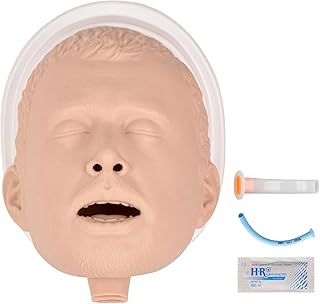In a bid to enhance the quality of integrated HIV, TB, and malaria services during antenatal and postnatal care in low- and middle-income countries (LMICs), a feasibility study was conducted to explore the efficacy of a blended learning (BL) approach. This approach aimed to address the challenges of high costs and service disruptions faced by health care professionals due to severe human resource shortages in LMICs. The study was particularly timely in the context of the COVID-19 pandemic, which underscored the need for alternative training methods to traditional face-to-face education.
The research involved repackaging a four-day face-to-face (f2f) continuous professional development course on antenatal and postnatal care into a 3-part BL course. The components included self-directed learning, facilitated virtual sessions, and face-to-face sessions. The study, conducted in Nigeria, Tanzania, and Kenya, assessed the feasibility, knowledge improvement, and cost-effectiveness of the BL package among 89 healthcare professionals.
Participants engaged with the online sessions predominantly using mobile phones from home and health facilities. The BL course attracted a diverse group of healthcare professionals, including nurse-midwives, doctors, clinical officers, and other professionals. Participants appreciated the flexibility and educational content of the BL approach, highlighting its relevance to their practice and the opportunity to earn Continuous Professional Development (CPD) points.
While the BL approach was well-received, participants faced challenges such as internet connectivity issues during virtual sessions and login difficulties at the start of the self-directed learning component. Nonetheless, the blended learning sequence, which involved theoretical concepts preceding practical skills training, was commended for enhancing active participation and learning outcomes.
Quantitative data revealed significant improvements in participants’ knowledge and skills following the BL training. Knowledge assessments and skills assessments, including Objective Structured Clinical Examinations (OSCEs) on breastfeeding and IUD insertion, demonstrated notable enhancements in participants’ competencies.
Cost analysis indicated that the BL training approach was cost-effective compared to traditional face-to-face training methods. The study estimated the design costs of the BL training package and the implementation costs in each country, with the BL approach proving to be more economical per participant compared to full face-to-face training sessions.
Qualitative insights from participants emphasized the inclusive nature of the BL approach, the value of alternative learning methods, and the significance of the course content in addressing gaps in ANC-PNC service provision. Participants also appreciated the interdisciplinary mix of health worker cadres and the hands-on experience offered during face-to-face sessions.
In conclusion, the blended learning approach to ANC-PNC in-service training was found to be acceptable, feasible, and cost-effective in the study settings. The BL training approach effectively improved the knowledge and skills of healthcare professionals, paving the way for future implementations of similar training programs in LMICs. Further research is recommended to evaluate the long-term impact and cost-effectiveness of blended learning approaches in improving the quality of maternal healthcare services.
📰 Related Articles
- Review Unveils Limitations in Blended Learning for Physical Education
- Accenture Boosts Learning Capabilities with Ascendient Acquisition
- Xerox Completes $1.5B Acquisition of Lexmark, Boosts Print Business
- Xerox Boosts Market Presence with Lexmark Acquisition, Stock Surges
- World Bank’s Role in Enhancing Remote Learning Strategies Globally






